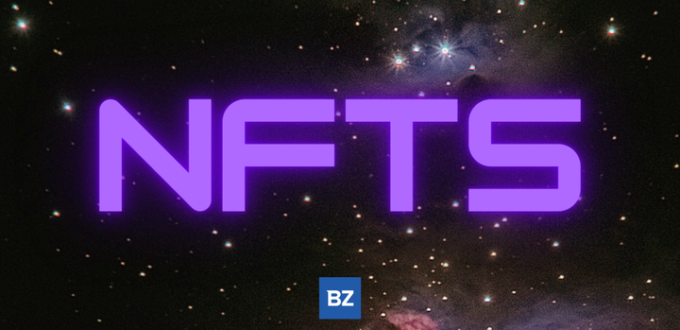Ryan Wilkinson, head of product of Blockasset.co – an athlete-verified NFT ecosystem
The COVID-19 lockdown was every sports advocate’s nightmare. In what seemed like no time, live sports games were no more. Players and fans alike got stuck at home with virtually no outlet for their work – or, respectively, hobbies. At least, it seemed that way at first.
Eventually, we all found a new normal. Professional esports players began live streaming video games like NBA, Fortnite, and Rocket League, bringing in thousands of viewers at once and bolstering the scene. Esports revenues grew to $947.1 million in 2020, and a predicted 728.8 million viewers are expected to watch in 2021 — up 10% from 2020 alone. Otherwise, fans enjoyed rewatching old documentaries, while sports clubs and brands pushed all types of social media engagement: from interviews to quizzes, and explored other ways for fans to connect with their favorite players.
For example, Nike ran a #playinside social media campaign to engage its community. The campaign included free, live-streamed in-home workouts for fans to follow along with, revamped its digital app offerings, and even put together a Living Room Cup for fans to measure their workout results against pro athletes.
However, even though live events are coming back, the post-pandemic reality has changed the sports landscape: and, probably, for good. As dozens of sports brands, clubs, and athletes continue exploring the new opportunities of online interaction, we’re entering the new era of fan-athlete connectivity. Thanks to the innovation of non-fungible tokens (NFTs), sports fans and brands are tapping into a new power of engaging with one another.
New-age digital collectibles
With a sweet pang of nostalgia, I remember my childhood, when my friends and I collected sports trading cards, sticker books, and stamps. Those kids who had full collections of different items were the coolest.
Today, NFTs are paving the way for the future of collectibles, enabling fans to collect and trade virtual stickers and one-of-a-kind highlights from their favorite players. They can have different degrees of a rarity – and, similar to the collectible card games of the past, some digital fan collections are worth tens of thousands of dollars. Fans, in turn, are excited to acquire unique collectibles from their favorite athletes and are likely to pay top dollar to hold the rarest ones.
There’s huge potential here for athletes to create a better fan experience and engage their followers: for example, by releasing and promoting the big moments of their careers, reward their top fans with one-on-one chats or real-life meets, or giving them access to lotteries, drops and exclusive merchandise, while brands can highlight specific stickers and launch new packs. Digital one-on-one rewards could turn into real-life dinners with a player or even a team. NFT collectibles might have real-life counterparts that fans can trade, providing both a virtual and physical representation of a fan collection.
Indeed, many top clubs and brands are already recognizing the benefits of the new tech. On the 15th anniversary of the Miami HEAT’s first championship win, the NBA launched an “Official Commemorative NFT Collection.” The collection brought digital recreations of the championship ring, virtual ticket stubs from the championship itself, and even 8-bit versions of banners and rings. Some NFT investments even included a chance to win physical versions of certain offerings, and the possibility of winning tickets to a game in the 2021-2022 season.
Fan tokens, helping create new stories
Another trend that has emerged lately is fan tokens: essentially, a unique cryptocurrency offered by a sports team. Fan tokens can be spent on rare collectibles, NFTs, and more. It’s essentially a rewards program with NFT technology integration, but there’s more: some fan token programs allow their holders a say in decisions taken by the team or an athlete, like voting on future game locations, logo designs, or choosing the topic for the next video the athlete makes. Many fans would love to take part in their hero’s journey, right?
As we’re breaking out of the pandemic and back into the real world, fan tokens, along with NFTs technology can certainly enhance the real-life experience of enjoying sports. Of course, there’s still a lot to be explored about the tech. For one, sports venues might each have their line of fan tokens, offering team-specific merch and rewards, potentially expanding the collectibles to a national level. Clubs and leagues might reward fans who have been to multiple football stadiums with discounts on travel or hotels, encouraging fans to experience even more areas.
What does the industry’s future hold?
The sports industry has always been quick to embrace new tech and use it to its benefit. As I mentioned above, there’s much it can gain from engaging with NFT and fan tokens. Right now, in the middle of the NFT hype, using these technologies might mean tremendous marketing success – but there’s more to NFTs and fan tokens, as they offer a novel way to engage the audience and provide a whole new level of the fan experience. Those brands, clubs, and athletes who properly integrate NFT technology and build sustainable tokenomics models will enjoy new revenue streams and increased engagement, largely due to the increased fan connection available only through these technologies.
Of course, this is just the beginning. It’s up to the brands and the players to come up with more creative ways to harness these new technologies. As the borders enforced by the pandemic lift once again, we might witness a great change in sports fan and player engagement.

No Comments Yet